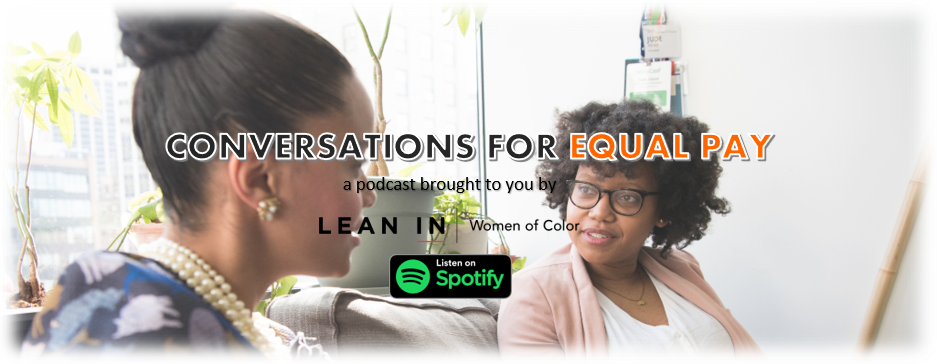By VIDHYA SHANKER
There is thus a selection bias in the stereotype that those of Asian descent are all wealthy, successful, and good in math and science. The truth is that those are the only Asians that were allowed to emigrate to the USA when immigration laws were reformed in 1965.
Asian/ Pacific Islander women and non-conforming folks deserve equal pay for equal work as well as research, advocacy, and policies that acknowledge our communities’ diversity of needs and strengths. As a research and evaluation professional who was active with the National Asian Pacific American Women’s Forum at its inception, I see the issue of equal pay as largely about data.
The wage disparity between Asian/ Pacific Islander American women/ gender non-conforming people and whites is made invisible by the model minority myth. The narrative of the “model minority” is more insidious and complicated than it may seem.
The reason that many people reading this may think that all Asian Americans are wealthy and successful is because that narrative was carefully constructed. Americans of Asian descent were not always perceived as they are often portrayed now—indeed, Asians were not even allowed entry or naturalization into the USA. It was only when the USA realized it could not compete with the USSR without opening up its borders to more countries—and found that Europeans were no longer interested—that it allowed immigration by Asians.
There is thus a selection bias in the stereotype that those of Asian descent are all wealthy, successful, and good in math and science. The truth is that those are the only Asians that were allowed to emigrate to the USA when immigration laws were reformed in 1965.
Furthermore, that generation of immigrants—my parents—were deliberately used to discredit the movement organizing work that was taking place in the USA at that time. Such movements were calling attention to structural inequities, and prominent politicians deliberately used immigrants from Asia as supposed examples of individual effort—neglecting to mention that the only Asians allowed in the country were hand-picked. Even so, among women of color, Asian American women are the most likely to have graduate-level education yet the least likely to have line or supervisory responsibilities or hold a position within three levels of the CEO. Comparably educated whites earn more and are more highly placed.
The model minority myth also flattens within-group heterogeneity: We are represented in every sector, industry, occupation, managerial level, and socio-economic class. Moreover, while the mainstream narrative claims Asian/ Pacific Islander American women make more on average than other racial/ ethnic groups in the USA, disaggregated data show that women of Southeast Asian, Pacific Islander, and some South and West Asian groups actually experience some of the lowest pay and poorest working conditions. Most employment and labor data sources do not disaggregate by ethnicity/ national origin and offer limited gender identity options. As a result, there are limited means of even assessing pay inequity across Asian/ Pacific Islander American ethnicities/ nationalities and gender identities.
Many from the above ethnic groups came to the USA involuntarily, as a result of various conflicts—including US wars—throughout Asia. This dimension of the Asian/ Pacific Islander American experience leads us to be perceived as perpetual foreigners. No matter how many generations we have been in the USA, we are asked where we’re “really” from, how we know English, and why we don’t have an accent. This underlies current Islamophobia as much as it underlies the incarceration of Japanese Americans during WWII.
Our supposedly foreign status often underlies rationalizations about Asian/ Pacific Islander American women’s lower status and pay relative to whites. We are also often perceived as being culturally different—specifically, more compliant—in ways that make us less suited for management positions. Our supposed compliance is a double-edged sword: It’s used to tell other communities of color that they would get ahead if only they behaved. It’s simultaneously used to tell us we’re not management material.
In fact, English is widely used in many Asian countries, many of us have been here longer than descendants from some European countries, and dissidence is part of many of our cultures. I personally have surprised more than one employer when I was not the Asian American woman they’d learned to expect.
The work and labor of all Asian/ Pacific Islander women and gender non-conforming people should be valued and fairly compensated—and 87% of Asian/ Pacific Islander Americans agree. Support comprehensive equal pay policies on the state and federal level, such as the Paycheck Fairness Act. Call for data equity and the implementation of best practices for Asian/ Pacific Islander American disaggregation in pay equity research. Call for increased gender identity options in government surveys so that disparities in the pay and placement of Asian/ Pacific Islander American trans and genderqueer workers can be identified and reported.
Hashtags:
#AAPIEQUALPAYDAY
#NotYourModelMinority
#LeanInWomenofColor
#20PercentCounts
#MentorHer



0 comments:
Post a Comment